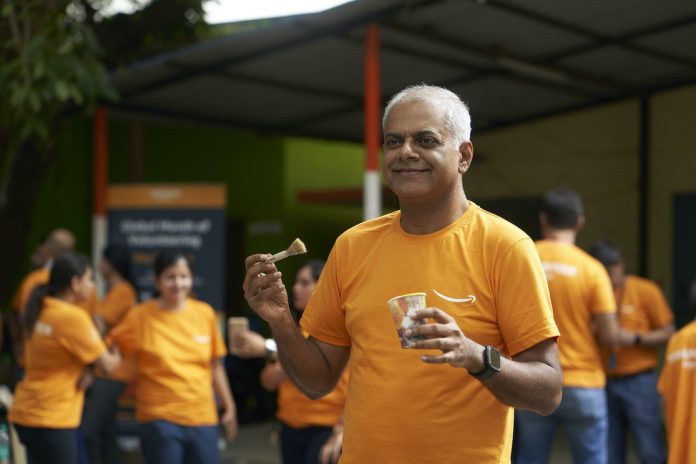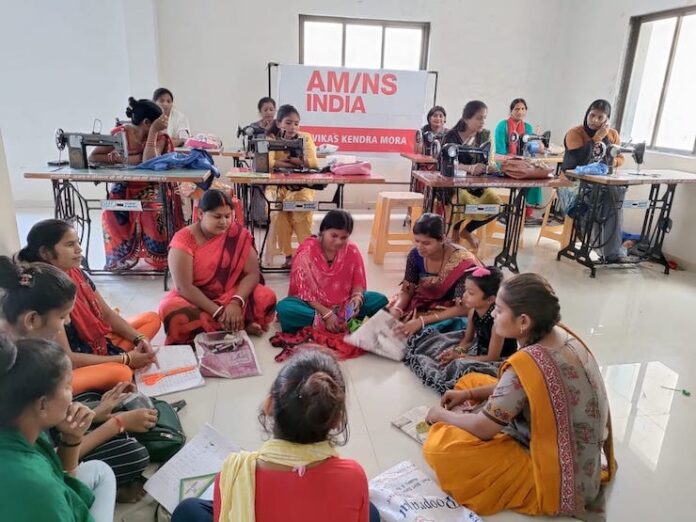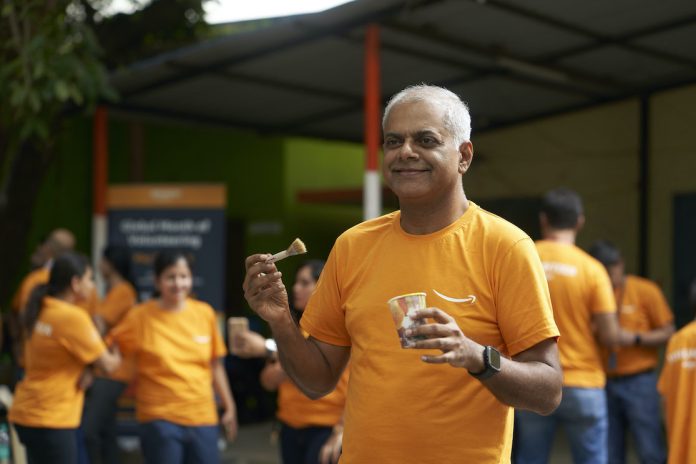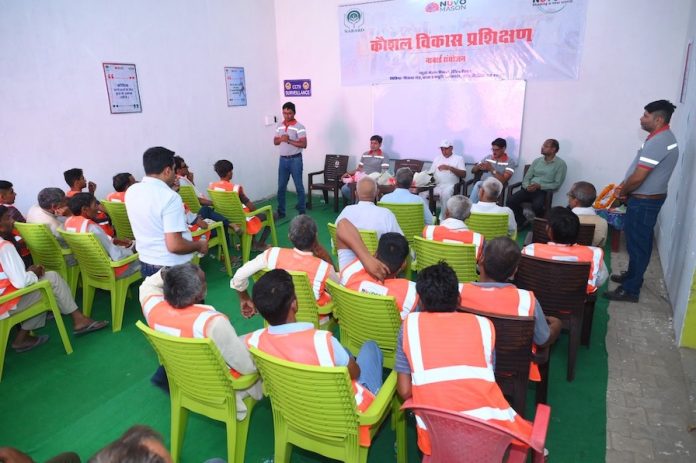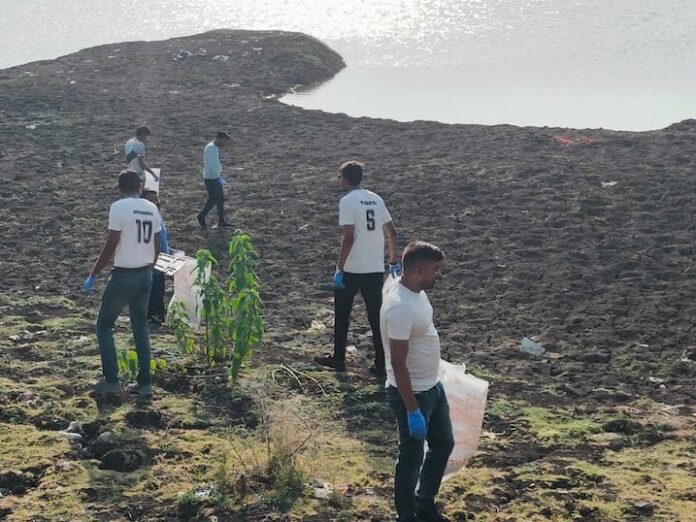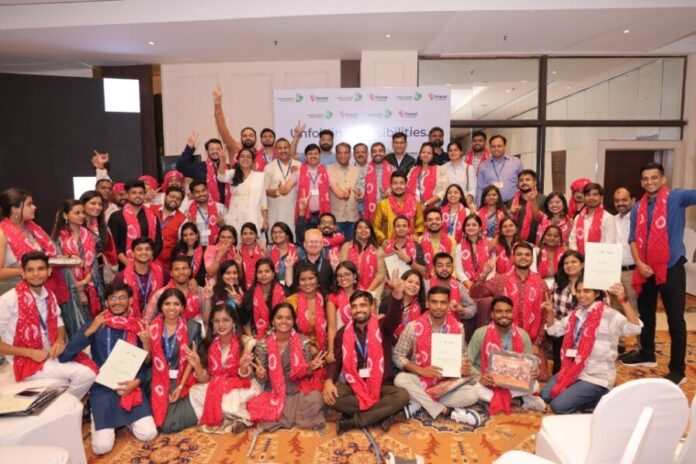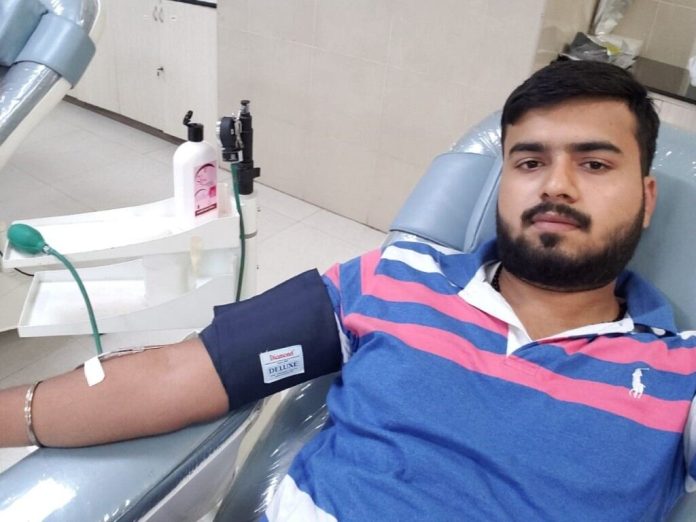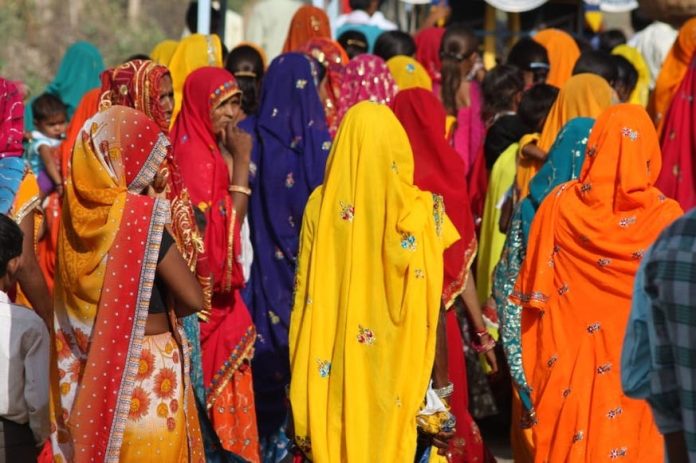Inauguration of multiple CSR initiatives in Hazira Kantha Vistar
Reflecting its commitment to community development and empowerment in Hazira and surrounding villages, ArcelorMittal Nippon Steel India (AM/NS India) inaugurated a series of CSR initiatives in the area on Friday.
The projects were inaugurated by Shri Mukesh Patel, Hon’ble MOS Forest and Environment, Climate Change, Water Resources & Water Supply, Government of Gujarat, in the presence of Shri Sandip Desai, Hon’ble MLA, Choryasi, and other dignitaries.
The projects inaugurated include the installation of 125 solar streetlights in Suvali village, aimed at promoting sustainable development. Additionally, a new cricket ground was inaugurated, and a groundbreaking ceremony for a community hall took place in Hazira village. Another highlight of the evening was the felicitation of Self-Help Group (SHG) women from Damka and Hazira, recognizing their contributions to the local economy.
The establishment of a Hazira Kantha Vistar women’s cricket team and the provision of coaching classes for female students in grades 8 through 12, alongside offering employment opportunities for women, represent some of the key initiatives undertaken.
The minister and other dignitaries handed over employment letters to female crane operators from the Hazira belt, showcasing AM/NS India’s commitment to women empowerment and job opportunities for the local communities.
Lauding the initiatives, Minister Mukeshbhai Patel said, “AM/NS India is making significant strides through its CSR activities in the Hazira area. AM/NS India is set to become the first steel company in the country to employee 100 women as crane operators. Today, employment letters have been awarded to approximately 30 women from surrounding villages. I express my sincere gratitude to the entire team of AM/NS India for their commendable public welfare efforts in Hazira.”
In his address, Dr. Anil Matoo, Head – Corporate Affairs, AM/NS India, Hazira highlighted the company’s commitment to community development.
“At AM/NS India, we believe in empowering the communities we operate in. Support through initiatives in the field of Health, Environment, Education, Sports, Community Infrastructure and Skill Development are our key focus areas. We are committed to creating sustainable livelihoods in the Hazira Kantha Vistar and driving positive and inclusive change.”
The minister and other dignitaries also distributed prizes to the winners of the final match of the AM/NS India Rural (Hazira-Kantha Vistar) Cricket Tournament, which witnessed the enthusiastic participation of teams from the Hazira coastal villages.
MLA Sandip Desai commended AM/NS India’s CSR activities and highlighted the employment generation opportunities created by them.
Local community leaders, including members of the district and taluka panchayats, and senior AM/NS India officials were also present on the occasion.
Disclaimer: This media release is auto-generated. The CSR Journal is not responsible for the content.
Turning ambition to action on reducing plastic consumption
As a society, we rely on plastic heavily for practicality, convenience, and safety. From medicine packets and food packaging to mobile phone cases, demand for plastics has grown in tandem with society’s changing habits. In 2021, global plastics production was reported to have doubled since the beginning of the century to almost 400 million metric tons per year.
While plastics play an essential role in many cases, this increased use means increased plastic pollution and waste. India uses around 14 million tonnes of plastic annually and is among 12 nations responsible for 60% of the world’s mismanaged plastic waste. Whilst there has been progress, with initiatives such as the country’s ban on some single-use plastic items, there is still much that we can do to reduce the impact of plastics.
Plastic pollution impacts society in a number of ways – by altering habitats and natural processes that directly affect millions of people’s livelihoods, food resources, social wellbeing, and physical health. Some plastic pollution, such as litter on roadsides, beaches, riverbanks, urban estuaries and even surrounding landfill sites is, at least in principle, reversable. On a local scale, such plastic pollution can be removed through encouraging individual responsibility, clean ups, and improved waste collection infrastructure. However, when left in the environment for a significant amount of time, weather can see abandoned plastic pollution fragmented into micro- and nanoplastic particles that cannot be easily removed from the environment. Many remote areas of the globe, where recycling or removal is more complicated, are already accumulating large amounts of poorly reversable, weathered plastic pollution, with significant impacts on land and ocean biodiversity. In India, waste management is a significant challenge as current systems are struggling to cope with the volumes of waste generated by an increasing urban population. India research suggeststhat only 30 per cent of 3.4 MT plastic waste generated annually is currently recycled.
Ultimately, to truly reduce plastic pollution requires society to reduce plastic waste generation. This is a global challenge, not least because waste in one part of the world does not just affect that location.
There is an opportunity for governments, organizations, and individuals to collaborate to act on plastic pollution, protect the environment and notably our water resources. Global initiatives such as Earth Day are seizing this opportunity to campaign for a 60% reduction in the production of all plastics by 2040. But with plastics present in so many aspects of our life and work, how can we encourage this societal shift to drive positive change?
To reduce plastic use and, as a result, reduce plastic waste for a water secure future, here are some steps organizations can take:
1. Join voluntary initiatives
To first understand the solutions available, organizations can join voluntary initiatives. These initiatives can help organizations to make commitments on reducing plastic pollution, and to collaborate with NGOs, governments, and other organizations to accelerate progress. The India Plastic Pact is one of these of initiatives that provide tools and guidance to tackle plastic pollution and connect organizations to share knowledge and drive change.
2. Plastic Footprinting
Initiatives such as the Plastic Footprint Network offer scientific guidance and methodologies to support organizations in understanding their plastic footprint. Similar to measuring carbon footprints, by assessing the environmental impact of the plastics used in products, services and operations, organizations can identify areas for improvement, take meaningful steps for reduction and set realistic and credible targets.
3. Engage employees
Accelerating progress towards a sustainable world requires input from across organizations. Internal culture and engagement can be key to delivering organizational sustainability goals. Organizations can embed a plastic reduction culture through educational talks, local clean ups, and by providing the necessary infrastructure and utilities to enable employees to reduce their own plastic use. Empowering employees to engage with an issue, understand how they can have a positive impact and then supporting them to change behaviours is a fundamental step to driving change.
4. Embrace a circular economy mindset
The circular economy is an economic model designed to minimize resource input, waste, and emission production by considering every stage of the product lifecycle. By implementing its principles to design products for reuse and repurpose, organizations and the people working in them can be better placed to reduce their consumption of plastics and other materials. Beyond their product design, organizations can also embed circularity in business strategies, such as the 5 R’s of Refusing waste; Reducing use of products that generate waste; Reusing; Repurposing; and eventually Recycling. For example, Coca Cola India has recently introduced the “World Without Waste” initiative which focuses on increasing the use of recycled materials in their packaging and promoting responsible disposal of plastic waste.
5. Engage supply chains
Sustainable procurement practices can help ensure organizations’ supply chains are environmentally responsible and socially ethical. By actively engaging with their supply chains, organizations can foster collaborative relationships to achieve sustainability goals, including around plastics. This involves identifying opportunities for improvement, sharing best practice, and establishing mutual sustainability targets and consistent methods of reporting.
To drive positive change on plastic consumption and mitigate the societal and environmental impacts of the associated waste, organizations and the individuals in them have the opportunity to take action in both their internal and external operations. A sustainable future is one without plastic pollution on land and in our water supplies. It’s not about eliminating plastic, it’s about using the tools we have to manage its use effectively. Now is the moment to partner across society to achieve this.
Views of the author are personal and do not necessarily represent the website’s views.
 Theuns is currently the Managing Director Assurance for BSI – Management Systems in India, Middle East, Turkey and Africa. He holds a B.Com. Degree from the University of Pretoria. Previously he held the position of Sales and Marketing Director for BSI- Management Systems in Europe, based in London. Prior to that he has held positions as the Managing Director of Amtri Veritas – UK and he was an Executive Director of Nosa International responsible for Auditing and Certification globally.
Theuns is currently the Managing Director Assurance for BSI – Management Systems in India, Middle East, Turkey and Africa. He holds a B.Com. Degree from the University of Pretoria. Previously he held the position of Sales and Marketing Director for BSI- Management Systems in Europe, based in London. Prior to that he has held positions as the Managing Director of Amtri Veritas – UK and he was an Executive Director of Nosa International responsible for Auditing and Certification globally.
Company offers certified masonry skills training to participants as part of its CSR Initiative
Nuvoco Vistas Corp Ltd, India’s fifth-largest cement group in terms of capacity, launched the Nuvo Mason – a Masonry Skill Development Program as part of its Corporate Social Responsibility initiative to benefit the unorganised masonry sector in Charkhi Dadri, Haryana.
NUVO Mason is a training program designed to improve the masonry skills of workers, empower them, and open new earning opportunities for them. The batch of 50 participants has been selected from the surrounding villages of the Company’s Haryana Cement Plant that will undergo training. This program consists of approximately 300 hours of training (theoretical and practical application) on tile masonry (floors and walls). The program content is aligned with the National Skills Qualification Framework (NSQF). Upon successful completion of the program, the National Skill Development Corporation (NSDC) will certify participants.
Nuvoco has engaged with the National Bank for Agriculture and Rural Development (NABARD), Rohtak Cluster, towards the partial funding of this program and aims to organize skill development training programs and provide better livelihood options for youth. NABARD is the apex development bank in India and has supported this skill development program under the for employment potential enhancement.
The program was inaugurated by Mr Kuntal Datta, Plant Head of Haryana Cement Plant, Nuvoco, Mr Dalveer Singh Dalwa, Sarpanch of Gram Panchayat, Chidiya, and Mr Jyoti Kumar Purohit, HR Head of Haryana Cement Plant, Nuvoco, along with other dignitaries from the village.
Mr. Kuntal Datta expressed his gratitude to Mr Mohit Yadav and Mr. Ankit Dahiya from NABARD Rohtak Cluster Office for their faith in Nuvoco’s CSR initiatives and further commented, “NUVO Mason reflects our dedication to community empowerment through skill development and social responsibility. By providing essential masonry skills to youth and workers in the unorganized sector, we strive to promote financial independence and enhance their quality of life. This initiative advances their technical abilities and creates pathways to sustainable livelihoods, embodying our core value, Care.”
NUVO Mason is a flagship skill development program launched by Nuvoco Vistas Corp. Ltd. in FY2022-23 and spans across the states of Rajasthan, Chhattisgarh, West Bengal, Haryana and Jharkhand. More than 500 youth, including women, have benefited from the program, increasing their incomes, and making their way into mainstream society.
Do have a look and request you to carry the same in your esteemed publication.
Disclaimer: This media release is auto-generated. The CSR Journal is not responsible for the content.
CSR Initiative Empowers Nationwide Environmental Drive
HDB Financial Services (HDBFS), India’s leading NBFC, celebrates World Environment Day, observing the theme for the year on “land restoration, desertification, and drought resilience.” To mark this event and commemorate World Environment Day, 700+ employee volunteers from HDBFS led a nationwide effort by spearheading a series of environmental activities across India. These initiatives deliver on its commitment to restore degraded land ecosystems and underscore the organization’s unwavering commitment to environmental conservation and sustainable development. The objective of this drive is to raise awareness and emphasize to HDBFS’s employees and the public at large the urgent need for stronger and more effective sustainability initiatives, ultimately aiming to build a more sustainable nation.
The environmental activities conducted by HDBFS employees spanned various regions across the country and included plantation and clean-up drives, water conservation activities, workshops promoting the reuse and recycling of waste materials, beach and lake clean-up drives, plogging activities, and seed ball preparation workshops. These efforts aimed to promote greenery, cleanliness, and sustainable practices while instilling a sense of responsibility towards the environment.
In collaboration with esteemed institutions such as BAIF ISLD, SankalpTaru, Smile Foundation, Etasha, Pradan, WOTR, EFI, Yuva Rural, Haritika, CHETNA, Saahas, Manuvikasa, COODU, Gramalaya, and WASH Institute, HDBFS ensured the success and impact of its environmental initiatives. From bustling urban streets to serene rural landscapes, HDBFS employees actively engaged in diverse activities that not only beautified their surroundings but also contributed to environmental stewardship.
Ashish Ghatnekar, Chief – People & Operations at HDB Financial Services, emphasized the significance of these initiatives, stating, “Addressing environmental challenges is complex. Through focused CSR initiatives and volunteer engagements, HDBFS is committed to mitigating risks posed by depleting water bodies and untreated common areas. Our employees’ enthusiastic participation in World Environment Day activities is inspiring and a testament to our commitment to environmental stewardship. Our goal is to raise awareness and drive global action on pressing environmental issues. Sustainability is at the core of HDBFS, guiding every initiative. Our CSR efforts go beyond compliance; they drive transformation and empower communities. On World Environment Day, our collective efforts highlight our dedication to making a tangible difference.”
Through these concerted efforts, HDBFS reaffirms its commitment to driving positive change and making a meaningful impact on the environment and communities nationwide.
Disclaimer: This media release is auto-generated. The CSR Journal is not responsible for the content.
CSR: Health camp to be hosted at hospital in Mithapur, Gujarat
Mithapur, India: Committed to its’ community well-being, Tata Chemicals will organize a health camp on 16th June, from 9 am – 2 pm with registrations starting at 7:30 am at its’ hospital in Mithapur for the local communities and the villages nearby that comprises a population of about 30000. This camp will include free general check-up by physician and surgeon as well as specialised check-ups by expert Oncologist and Cardiologist along with consultation and full access to hospital amenities, medical devices and related instruments.
Established on August 15, 1949, Tata Chemicals hospital has significantly impacted the lives of the local and neighbouring communities by treating over 10 million patients in the last 75 years. Committed to providing the community with accessible and quality healthcare services, Tata Chemicals Hospital continues its legacy of care and community service through such Health & Wellness camps.
At the upcoming health camp, a team of four medical professionals, including General physician, General Surgeon, a Cardiologist and an Oncologist, will address a wide range of healthcare needs in the medical camp that will be set up at Tata Chemicals Hospital. Through this initiative, Tata Chemicals aims to prioritise the well-being of thousands of locals from the villages of Mithapur, Surajkaradi, Arambhada, Bhimrana, Okha ,Beyt, Mojap, Varvala and many other villages.
“For over seven decades, Tata Chemicals Hospital has been synonymous with quality healthcare for the Mithapur community,” said Dr. S. Bhatnagar, Chief Health and Wellness Officer at Tata Chemicals Hospital.He adds, “This medical camp exemplifies our commitment towards the well-being and upliftment of the community. It is our constant endeavor to urge everyone to take this opportunity for specialist consultations and screenings that can greatly benefit their health. This initiative reflects our steadfast dedication to meeting our community’s needs, and we believe these efforts will strengthen our commitment to their well-being.”
Commenting on this initiative, Mr. N. Kamath, Chief Manufacturing Officer at Tata Chemicals said, “Tata Chemicals Hospital has significantly improved healthcare access and quality for the Mithapur community over the last few decades. Starting as a modest facility, it has grown into a vital part of the local healthcare system, offering comprehensive services and regular health check-ups. We hope that this camp will have had a profound impact, providing essential healthcare to thousands of people in underserved areas, detecting and managing chronic conditions early, and improving overall community health.”
Tata Chemicals Hospital has served as an integral aspect of Mithapur’s healthcare system by ensuring that the locals avail regular health check-ups and quality healthcare services.
Disclaimer: This media release is auto-generated. The CSR Journal is not responsible for the content.
CSR: Blood Donation Drive #RippleOfChange launched on World Blood Donor Day
Mumbai, India: Mankind Pharma, a globally renowned pharmaceutical company, has launched a major multi-city campaign titled #RippleOfChange on World Blood Donor Day. This initiative aims to address the critical shortage of blood donors in India and raise awareness about the importance of blood donation.
The campaign’s centrepiece is a powerful video that portrays the dire consequences of blood scarcity. The narrative follows a group of friends who experience the tragic loss of a loved one due to the unavailability of blood donors. The video aims to inspire more people to donate by highlighting how a simple act can save precious lives.
“With less than 1% of our population donating blood annually, India faces a severe and ongoing blood shortage crisis,” said Mr. Rajeev Juneja, Vice-Chairman and Managing Director, Mankind Pharma Ltd. “This critical shortfall in blood donations leads to the preventable loss of thousands of lives every day. Kindness resides in all of us, yet while many discuss this issue, few step forward to donate. Our #RippleOfChange movement aims to transform this notion by inspiring individuals to take action. By donating blood, each person can contribute to a ripple effect of positive change, saving lives, supporting medical emergencies, and fostering a culture of community care and responsibility.”
The integrated campaign spans digital, outdoor and on-ground activations across multiple cities. It features the release of the #RippleOfChange video on various digital platforms. Metro trains will feature innovative mirror installations to encourage commuters to reflect on becoming blood donors. Bus shelter ads in Delhi will further amplify the call to action. Additionally, Mankind Pharma is organizing free blood donation camps at its offices in Paonta Sahib, Manesar, and Delhi’s Okhla head office with 600+ people enrolled to date for this cause.
Despite India’s large population, the country faces an annual blood shortage of a million units annually, according to industry reports. This lack of access to blood costs over 12,000 lives every day. At Mankind Pharma, we believe that saving someone’s life is one of the noblest acts one can perform, deserving active support rather than passive discussion. The company’s employees, known as Mankindians, regularly donate blood and advocate for this cause, demonstrating the potential for collective action to create a significant positive impact.
Disclaimer: This media release is auto-generated. The CSR Journal is not responsible for the content.
CSR Foundation hosts convocation of Gandhi Fellowship Batch 15 in Delhi
Delhi, India: Piramal Foundation completed its three-day annual convocation ceremony of the 15th batch of their Gandhi Fellowship Program on June 12, 2024 in Delhi. Gandhi Fellowship is a 2-year program for the youth to work at the grassroots of India and acquire an in-depth experience across areas of Public Health, Education, Climate Change and Digitization. Continuing the theme of ‘Unfolding Possibilities’ the convocation event marked another significant milestone of nurturing 497 young change makers, empowering them on their journey towards social entrepreneurship.
The convocation ceremony hosted 600+ distinguished attendees including Gandhi Fellows, mentors, alumni, speakers, and esteemed guests, serving as a significant platform in recognizing the extraordinary endeavors of the Fellows. The convocation featured dedicated themes each day, emphasizing alumni engagement and collaborative learning with external stakeholders. This approach aims to foster a robust network among past and present fellows while promoting the exchange of knowledge and ideas with industry experts. The convocation upheld the core values of the Gandhi Fellowship Program, fostering leadership, community impact, and lifelong learning to empower fellows in driving meaningful societal change in their professional journeys.
This year, 500 Gandhi Fellows graduated after an intensive two-year program that has significantly honed their skills and broadened their perspectives. Immersed in the communities they served; the Fellows tackled pressing local challenges through various Public Systems projects. Their curriculum included activities such as Vipassana meditation to enhance self-awareness and the development of competencies in Nonviolent Communication (NVC), Individual Work Analysis (IWA), and a commitment to excellence. As they move forward, these graduates are well-prepared to become leaders in the development sector, innovative entrepreneurs, or pursue higher education, all the while continuing their mission to drive sustainable social impact.
Participants enjoyed a high-octane engagement with a lineup of thematic workshops and interactive sessions led by distinguished speakers, delving into topics ranging across various development themes. Esteemed speakers, included Mr. Amarjeet Sinha, Retired IAS Officer from Bihar Cadre; Ms. Shalu Manan, Global Talent Supply Chain & Talent Match Leader at Genpact; Dr. R Balasubramaniam, from Capacity Building Commission, Govt of India; Dr. Devendra Khandait and Suneeta Krishnan both Deputy Directors at the Bill and Melinda Gates Foundation; Michelle M. Lang-Alli, USAID/India Director for the Office of Health; Dr. Reuben Swamickan, Deputy Director, Health at USAID/India along with Dr. Amar Shah and Dr Neeta Rao. The Keynote address was delivered by Adil Zainulbhai, Chairman of Capacity Building Commission, Govt of India. These speakers offered valuable insights across domains. Alumni from diverse backgrounds, including entrepreneurs, intrapreneurs, those pursuing higher education and from the creative field shared their stories with the highly interested Fellows who are now venturing forth into the world to make their individual mark.
The evenings were filled with fun and music adding to the celebratory note. Overall, the attendees had ample opportunities for networking and collaboration, fostering meaningful connections and the exchange of experiences among fellows and guests that will resonate with them over time.
About Gandhi Fellowship
The 2-years experiential Fellowship provides a platform for the Fellows to directly engage with societal issues in Education, Health, Climate Change, and Digitisation at the last mile across 27 states. With over 3,000 Gandhi Fellows and alumni working across diverse areas, driving significant change across the country, the Fellowship has set the path for the formation of ‘Sewa leaders’.
For the last 15 years, Gandhi Fellowship has empowered young women and men to groom themselves into change leaders who go on to create large-scale social and public systems change, where each fellow is fueled by the philosophy of “Build Self, Build Nation”. Today, Gandhi Fellows are sparking change across sectors – such as chief ministers’ advisors, social entrepreneurs reshaping the globe, and members of Forbes’ 30 Under 30 list.
Disclaimer: This media release is auto-generated. The CSR Journal is not responsible for the content.
World Blood Donor Day 2024: What makes you eligible to donate blood in India
Did you know that you cannot wake up one morning saying “I will donate blood” and walk into your nearest hospital or blood donation camp? There are guidelines and health conditions which make you eligible or ineligible for blood donation.
World Blood Donor Day is observed on the 14th of June every year across the world to raise awareness of the need for safe blood and blood products and to thank voluntary, unpaid blood donors for their life-saving gifts of blood. World Blood Donor Day is celebrated on the birth anniversary of Karl Landsteiner, who discovered the ABO blood group system. According to the World Health Organization (WHO), the World Blood Donor Day theme for this year is ‘celebrating 20 years of giving: thank you blood donors!’
Blood donation serves to give patients access to safe blood and blood products in adequate amount, blood being a major component of our body. Blood donation is an unselfish act as we often donate blood for people who we do not know. However, a person willing to donate blood has to fit into certain criteria for being eligible. This is the reason why a thorough health check-up is done before blood donation to ensure the donor’s well-being.
On World Blood Donor Day, let us learn about the eligibility criteria for blood donation in India.
Age, sex and general health
To be able to donate blood a person should be aged between 18 and 60 years
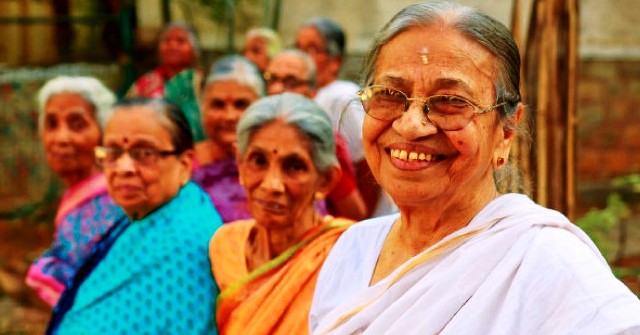
Any Gay or Transgender person is ineligible to donate blood in our country. India has had an official ban on blood donations by transgender persons since 2017. Transgender persons, gay men and female sex workers are considered to be a high-risk HIV/AIDS category and prohibit them from donating blood.
The donor’s Haemoglobin count should not be less than 12.5 g/Dl. A test will be administered at the donation site. In many countries, a haemoglobin level of not less than 12.0 g/dl for females and not less than 13.0 g/dl for males as the threshold, informs World Health Organization (WHO).
The donor’s Pulse rate should be between 50 and 100/minute with no irregularities
The donor’s Blood Pressure should be 100-180 mm Hg for Systolic and 50 – 100 mm Hg for Diastolic
The donor’s body temperature should be Normal – 98.6 degrees Fahrenheit with oral temperature not exceeding 37.5 degrees Celsius
Additional requirements
A person donating blood should not have been treated for Rabies or received Hepatitis B immune vaccine in the past one year.
A person willing to donate blood should not get a tattoo, ear or skin piercing or acupuncture in the past six months.
Donor should not have received blood or blood products in the past six months.
Donor should not have any serious illness or undergone any major surgery in the past six months.
Donor should not come in contact with any person with hepatitis or yellow jaundice in the past six months.
Donor should not have donated blood in the past three months.
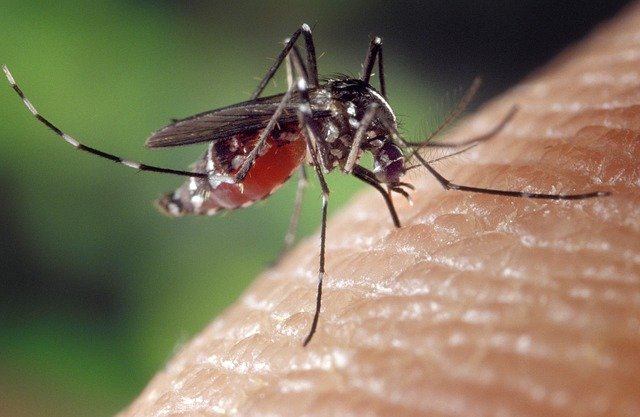
Donor should not have undergone treatment for Malaria in the past three months.
Donor should not have had any immunizations in the past one month.
Donor should not have taken any antibiotics or any other medications (Allopathic or Ayurveda or Sidha or Homeo) in the past 48 hours.
Donor should not have consumed alcoholic beverages in the past 24 hours.
Donor should not have taken aspirin in the past 72 hours.
Donor should not have undergone any dental procedure in the past 72 hours. If you have visited the dentist for a minor procedure you must wait 24 hours before donating; for major work wait a month, says World Health Organization (WHO).


